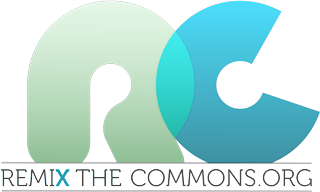
To help reclaiming, protecting and creating commons in our neighborhoods and cities, we offer to co-create an interactive Atlas of the charters of urban commons. The collaborative creation process will develop on an intercultural and interdisciplinary fashion, production and sharing of knowledge on legal tools that make alive the urban commons. Through workshops, camps, and cultural residencies, with the commoners, we will co-produce the Atlas (a mapping tool), that will be a place to meet and to interact for creating or recovering our urban commons.

The charters of the urban commons as inspiration
Urban commons charters are rules of self-governance established by a community for their commons in their neighbourhood, city, region… They can be transformed into legal instruments that formally recognize the rights and sovereignty of individuals and of the community over their common goods. They are also an instrument for organizing commoning with a view to preserving, sharing and transmitting those common goods. They are accompanied by a multitude of activities, narratives, creations, illustrations, celebrations, and studies that are the heart of the commons culture and that we want to conserve and hand on from generation to generation.
We aim to evolve within this commons culture to generate mutual inspiration and to nourish the imagination as well as the practices of the urban commons around the world.
Documenting commons charters experiences in an iterative, collective, decentralized and self-managed manner is in itself a way of making a common culture. Our proposal is to develop and make available to commoners various modes of documentation adapted to sharing the experiences of commons charters.
We plan to organise camps and cultural residencies and to collectively create an Atlas of urban commons charters through interactive mapping in semantic web.
This process is intended to be exploratory, pragmatic, pedagogical and political; it is as well both interdisciplinary and inter-cultural. It allows commoners to formalise their experience, to link it with that of other members of their community and to share it with other communities. It also allows to share both the legal tools developed over time and the experience accumulated around the world (with input from legal experts and urban designers). It aims to make this process known and recognized as one of the mainsprings of democracy and of the good life in an urban environment.
Learning from the historical and contemporary experience of the charters of the commons
The documentation and facilitation activities on the commons in the context of remixthecommons led us to discover the wealth and variety of citizen initiatives and proposals on urban and broader territorial scaleson various continents. In the process of constituting a commons, neighbours and citizens consistently take the key step of creating and formalizing rules of self-governance. Innovative practices in this domain exist at the neighbourhood level (as in Dakar) and on the scale of entire cities (Bologna, Djakarta and others). The experiences that appear to us exemplary are those where citizen initiatives have been able to mobilise a broad range of expertise from various sectors (cooperatives, activists, architects, lawyers, urban designers, informatics, etc) in order to advance proposals that are at one and the same time innovative and pragmatic, that welcome, encourage, ensure and guide active participation by citizens in regenerating, constituting and managing urban commons.
In Europe, the Italian examples of the self-managed cultural spaces, the AquaBeneComune in Milan and various municipal commons charters adopted in several cities are inspiring and hold the potential of being shared, remixed and adapted to other socio-cultural and political contexts.
This blooming of urban charters is a stimulus for commoners apprentices to share and co-produce knowledge and proposals with their pairs.
The consolidation of networks of commons activists on the European level has engendered a dynamic of exchange and intercultural cross-fertilisation. Recent seminars on the subject between France and Italy are an example.
In addition, this collective mobilisation in favour of urban commons charters is a superb way of celebrating le 800th anniversary of the Magna Carta, which profoundly marked the history of the commons.
An invitation to collaborate
We wish to implement a digital prototype of the atlas of the charters of urban commons. It will be co-created during a first workshop and improved by an iterative process. Workshops with people and online will stimulate documentation of existing charters and the creation of new adapted to their contexts and to their local rights. These actions will crossed scientific disciplines and popular know-how. And we will take care to have diversified processes of work and to ensure the sharing of data, of the design of uses and of the services inspired by the Atlas.
We are pleased to invite to participate all the activists and researchers motivated by the commons, especially those part of the Francophone network of commoners, and the organizations such as Commons Josephat (Brussels), Marx Dormoy Labs (Paris) Days of Urban Alternatives (Lausanne), or the House of the commons (Montpellier), LARTES in Dakar, …etc, and the European collectives such as Comuns urban activists in Barcelona, P2p plazas in Madrid, …etc.
This initiative will also lead us to collaborate with activists of the Rights to The City, such as in France, the Coordination “Pas sans nous! (Not Without Us!) and the Collective for Citizenship Transition, and the International Alliance of Inhabitants.
Some municipalities and local governments are already committed to support the commons and have their own charter. They offer spaces which allow to experiment our approach. The Festival of the Commons at Chieri in Italy (July 2015) could be the first opportunity.
The contribution of Remix the commons
Remix the commons incubates the project. We will share our experience of intercultural and multilingual projects such as Mapping the Definition of the Commons, of co-creation processes (see « The Art of Commoning» ) and our knowledge of European networks, including France, Spain, Italy and Germany. One of the first dates that we can give us, will be the Francophone Festival “Temps des Communs” (from 5 to 18 October 2015).
